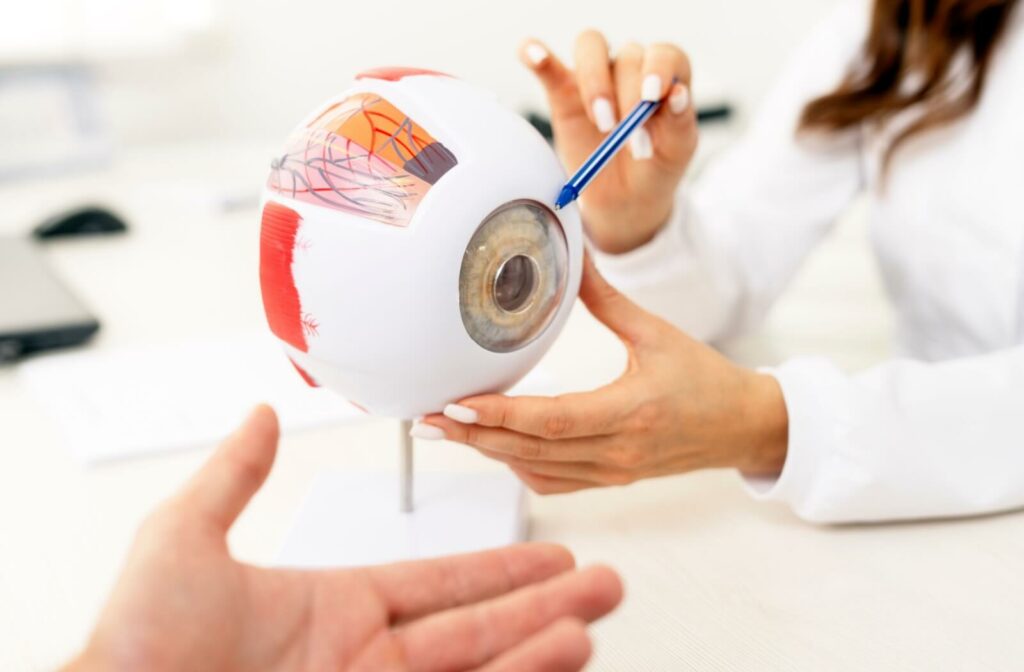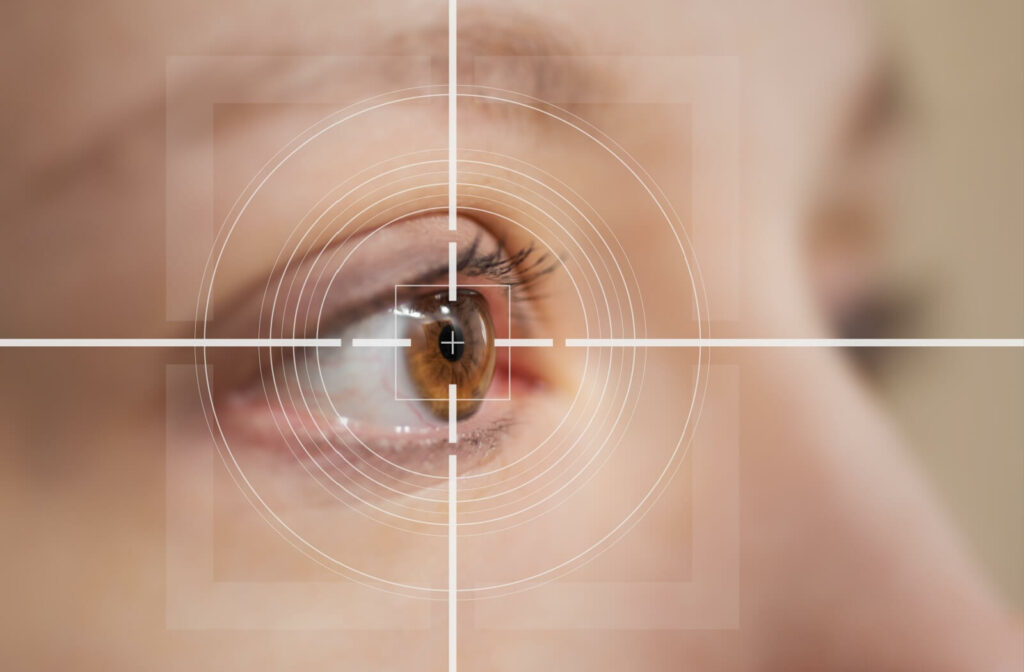If you’re thinking about LASIK surgery, you’ve likely asked yourself, “How long will the results last?” It’s a common and important question—and rightfully so. After all, one of the primary reasons individuals opt for LASIK is the promise of long-term visual improvements.
The results of LASIK are generally considered permanent, but natural aging or conditions like cataracts can still affect your vision over time. It’s also important to know that while LASIK eliminates the need for glasses or contact lenses for many people, you may still need them after having the procedure depending on your personal eye health.
At Eye Effects, we understand how life-changing this procedure can be, and we’re here to provide you with detailed information so you can make an informed decision.
How Does LASIK Work?
To understand the longevity of LASIK, it helps to first know how the procedure works. LASIK—which stands for laser-assisted in situ keratomileusis—is a type of refractive surgery designed to correct vision problems by reshaping the cornea. The cornea is the dome-shaped, transparent layer at the front of your eye, and it plays a crucial role in focusing light onto the retina.
During LASIK, a laser is used to address imperfections in your corneal shape. These imperfections often cause refractive errors, such as:
- Nearsightedness (myopia), where distant objects appear blurry.
- Farsightedness (hyperopia), where close objects are difficult to focus on.
- Astigmatism, a condition causing blurred or distorted vision at all distances.
By correcting the corneal irregularities responsible for these issues, LASIK helps light focus properly on your retina, resulting in sharper, clearer vision.
Is LASIK Permanent?
The short answer? Yes, LASIK is designed to be a permanent vision correction procedure. The changes made to your cornea during surgery are lasting. They don’t wear off over time or “fade.”
That said, while LASIK reshapes your cornea to correct refractive errors, it doesn’t stop your body’s natural aging process or prevent changes in your vision caused by other conditions. Here’s what you should keep in mind:
Aging Eyes
As you age, your eyes naturally undergo changes. One common condition is presbyopia, which typically starts to develop in your early 40s. Presbyopia affects your eye’s ability to focus on close-up objects and if you develop it, you may require reading glasses, even if you had LASIK. This is unrelated to the original LASIK procedure and occurs because the lens inside the eye becomes less flexible over time.
Other age-related issues, such as cataracts, can also influence your vision later in life. Cataracts cause the lenses in your eyes to become cloudy, affecting overall clarity. While LASIK can’t prevent these age-related changes, they are treatable with other procedures.
Vision Stability
A stable vision prescription before surgery is key to the longevity of LASIK results. Optometrists and surgeons typically recommend LASIK for individuals whose prescriptions have remained unchanged for at least one year. Significant changes in your vision after LASIK—caused by factors such as hormonal fluctuations, health conditions, or trauma—might require attention or additional correction.
Touch-Up Procedures
Although LASIK provides lasting results for most patients, some may need an enhancement procedure years later. This occurs when minor adjustments are needed to refine vision, especially if small shifts occur over time. These additional touch-ups are generally rare and are often a quick and straightforward process.
What Are the Benefits of LASIK Longevity?
One of the most compelling benefits of LASIK is the freedom it can offer from glasses and contact lenses. LASIK can provide long-lasting improvements to your vision that may help you confidently enjoy activities like sports, swimming, driving, and travel. Imagine no longer worrying about glasses slipping off your face during a game or contending with dry, uncomfortable contact lenses on long flights or in winter weather.
Although that can be the reality for many patients, it’s important to remember that your individual results can vary based on your prescription and eye health before you get the procedure. If you have a particularly high or complex prescription, it’s possible that you may still need to wear glasses or contacts after getting LASIK. However, in those situations, LASIK may still be an effective option for reducing the severity of your prescription and opening up more options for eyewear.

Is LASIK Right for You?
Deciding whether LASIK aligns with your goals starts with understanding its requirements. Although LASIK is a fantastic option for many people, the procedure isn’t for everyone. Ideal LASIK candidates typically meet these criteria:
- They are at least 18 years old and have had a stable eye prescription for 1 year or longer.
- Their corneas are healthy, with sufficient thickness to safely perform the procedure.
- They don’t have underlying eye conditions like severe dry eye, keratoconus, or glaucoma, which could increase risks.
Each person’s eyes are unique, and the only way to truly determine your suitability is through a detailed consultation with a trusted professional. At Eye Effects, our team prioritizes your eye health above all else. We’ll take the time to perform a thorough examination of your vision and assess your overall eye health to make an informed recommendation tailored exclusively for you.
Take the First Step Toward Clear Vision Today
If you’re ready to explore the freedom and ease of clear vision without the hassle of glasses or contacts, LASIK could be the solution you’ve been looking for. At Eye Effects, we are here to help you see what’s possible.
By scheduling a consultation, you’ll receive personalized advice and the resources you need to make the best decision for your visual needs. Your eyes deserve trusted, thorough, and experienced care—and that’s exactly what Eye Effects provides.
Don’t wait to experience the difference LASIK can make. Contact us today and take the first step toward a lifetime of clearer vision!


